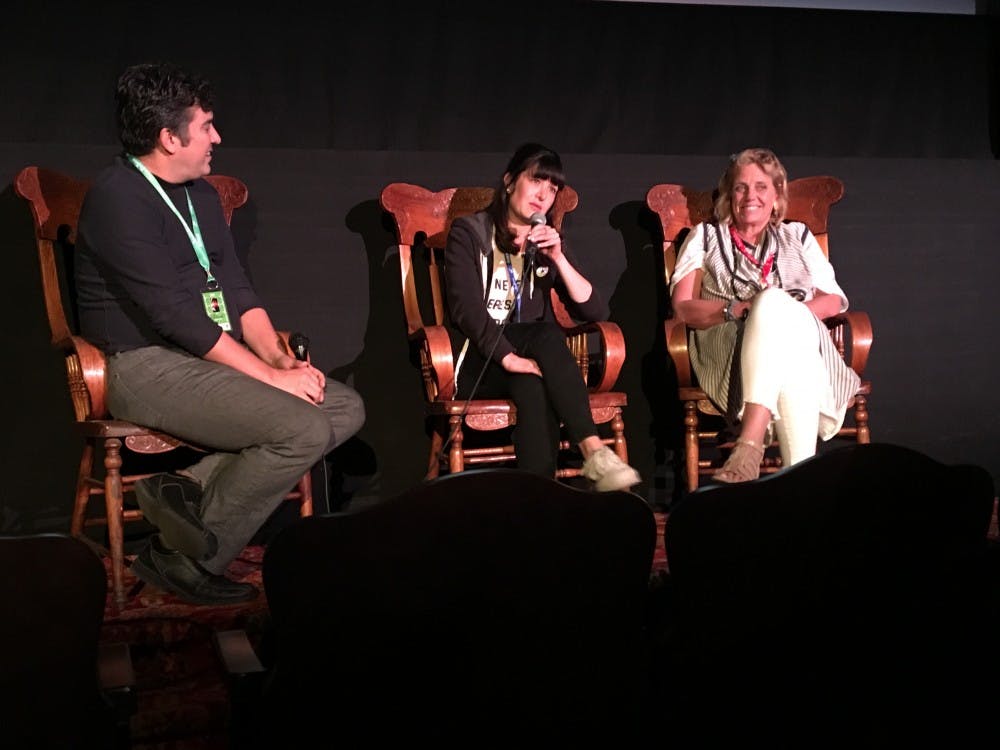As the clouds parted across the mountainous terrain of Telluride, Colorado, the sun shone above the grassy alcove surrounding the all-female panel at the Abel Glance Open Air Cinema during the 45th Telluride Film Festival.
The panel was comprised of five women: director Marielle Heller and actress Melissa McCarthy from the film "Can You Forgive Me," director Karyn Kusama and actress Nicole Kidman from the film "Destroyer" and their moderator, Annette Insdorf. The women gathered to discuss whether or not "stories with female protagonists" are "moving front and center" in the film industry.
Both the directors and actresses offered thoughtful commentary while addressing the importance of telling female stories through film.
Kidman emphasized the need for these stories to be told even when it involves uncomfortable material, such as sexual or physical abuse, which, given the rise of the #MeToo movement and the fall of Harvey Weinstein (formerly one of Hollywood's biggest film producers), proved to be a very compelling conversation.
"Sometimes artistically you're delving into very, very difficult, uncomfortable places to find truth or magic or authenticity and that requires the director and the actor or the other actor...[to say] 'Are you okay with this?'" Kidman said. "I've had to do sex scenes and I've had to do things where I've gone, 'This is really, really uncomfortable,' but I feel that it's important because what we're trying to achieve is important here and that's trust and respect."
While the general mood of the discussion was positive, everything was fixated on the future.
In fact, so much of society's discussions on feminism, the role of women in art and the struggle for overall equality is grounded in the future becoming female. However, Telluride's brightest moment was the American debut of "Be Natural: The Untold Story of Alice Guy Blache," -- a film that chose to explore women's historical roots in the industry's past.
Pamela B. Green's documentary , "Be Natural: The Untold Story of Alice Guy Blache," tells the story of the film industry's first female pioneer -- a director, filmmaker, producer, screenwriter and actress who started her career at the Gaumont Film Company in 1896.
Over a period of 26 years, Blache made more than a 1,000 films (of which only a few hundred remain) and managed her own studio, The Solax Company, during the early 20th century after she and her husband moved from France to the States.
Blache made history -- she was one of the first to develop narrative filmmaking, the first to use a cast of all black actors and the first director to encourage actors to "Be Natural" by hanging a sign above the wall in Solax -- but she was left out of its books.
After the industry moved its headquarters to Hollywood, and Wall Street began to recognize how commercially successful movies could be, they effectively snatched the reins Blache held back when most businessmen considered filmmaking a passing fad.
Blache irrevocably changed the landscape of filmmaking, yet never received the credit she was due. As a result, Green was inspired tell the story of Blache's lasting legacy and dedicated ten painstaking years to uncovering the truth behind a woman who changed the world.
Enjoy what you're reading?
Signup for our newsletter
The film is an inspiring piece of work that captures the spirit of stories with female protagonists "moving front and center" in film by paying homage to the very woman who pioneered the art form over 100 years ago.
"It took ten years to make this movie," Green said during the film's screening at Telluride's Masons Hall Cinema. "I cried all the time, but, you need to believe you're doing something to make a change."
This article previously misspelled Alice Guy-Blache's name. It was updated at 2:39 p.m. on Friday, Sept. 14, 2018 to reflect this change.




